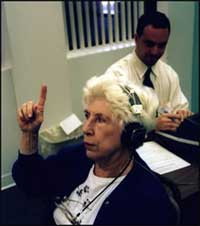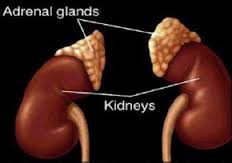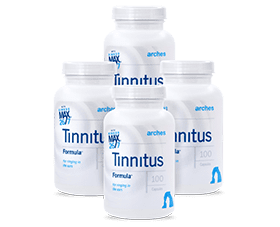By Barry Keate
Barry Keate, has lived with tinnitus over 40 years and has published 150+ research articles on numerous aspects of tinnitus. He is an expert on the condition and a well-known advocate for those with tinnitus.
Several years ago, I wrote about the human hormone aldosterone and its positive effect on sudden sensorineural hearing loss (SSHL). It was being investigated as a replacement for steroid treatment. New evidence strongly indicates that it does help to prevent hearing loss, and possibly also to restore some hearing in cases of age-related hearing loss (presbycusis).
Aldosterone for Sudden Sensorineural Hearing Loss
The standard treatments for sudden hearing loss have been steroids, especially prednisone, because this type of hearing loss has been thought to be autoimmune in nature, and prednisone depresses the immune system. Unfortunately, while this works for some people, clinical studies have not confirmed its effectiveness versus a placebo.
In 2001 researchers at Oregon Hearing Research Center (OHSU) began a series of studies to determine whether aldosterone is a more effective treatment.

They found that it is more effective. This led them to believe that the condition is not autoimmune after all, but caused by a hormone deficiency. (1)
Jonathan Wright, MD, of the Tahoma Clinic in Renton, Washington, presented further evidence in a case study. He treated a patient who had suffered sudden hearing loss in his right ear a year earlier. Then, inexplicably, he suffered the same hearing loss in his left ear.
Dr. Wright measured this patient’s aldosterone levels and found them to be very low: 4.7 mcg/ml on the first test and 3.6 mcg/ml in a second test. (Normal levels range from 6 to 25 mcg/ml.) After treatment with 125 mcg of a bioidentical hormone twice daily. the patient’s hearing in his left ear returned to normal. When he stopped taking the aldosterone, his hearing began to fail again within ten days. Resuming the medication returned hearing in that ear to normal.
Aldosterone for Presbycusis
More recently, inspired by the work at OHSU, researchers began investigating aldosterone with aging laboratory mice. They administered a dosage designed to restore aldosterone levels to those of a young adult mouse. (2) Their results were promising:
- The mice demonstrated a preservation or improvement of hearing.
- They displayed preservation of hair cells, which send auditory signals to the brain.
- The regulating pathways in the ear were blocked, preventing cell death due to aging cells.
The causes of presbycusis include genetics, cumulative damage from exposure to noise over many years, and physiological changes related to aging. The net effect is damage to the hair cells in the inner ear. This is similar in some ways to noise-induced hearing loss (NIHL) and tinnitus in younger people. It stands to reason that aldosterone may help with NIHL and tinnitus too, but to date there are no clinical studies to verify this.
Aldosterone History and Mechanism of Action
Researchers at OHSU knew that high doses of prednisone, which is commonly used to treat SSHL, can activate aldosterone receptors. So they tested whether the activation of aldosterone receptors was the mechanism by which hearing was restored in some patients who used prednisone. When they used a medication designed to block aldosterone on autoimmune-deafened mice, prednisone no longer preserved hearing. (4)
Next, they compared the effects of aldosterone and prednisone in animals with hearing loss, finding aldosterone to be more effective. They concluded that hearing loss is not autoimmune in nature, and that aldosterone can restore hearing. (5)

Aldosterone is a mineralocorticoid steroid produced by the adrenal glands, which are next to the kidneys. Its primary purpose is to regulate sodium and potassium metabolism in the kidneys. Cochlear function depends on proper potassium and sodium concentrations, which decrease with age, sometimes causing hearing loss. Some younger people also have unusually low aldosterone levels, and they too have hearing loss. (3)
Even though it is a natural molecule found in the human body, the US Food and Drug Administration (FDA) has outlawed the sale of bioidentical aldosterone. The FDA allows other natural hormones to be sold in bioidentical form. One might suspect that the FDA is protecting a pharmaceutical company which markets a synthetic analog of aldosterone in the US. Its product, fludrocortisone, causes many of the same side effects as prednisone. Fludrocortisone has not been tested as a treatment for SSHL, presbycusis or hearing loss.
Patients in the US Aldosterone can obtain aldosterone from Canadian compounding pharmacies with a US doctor’s prescription. It can be shipped from Canada directly to a patient’s home.
We welcome feedback from anyone who has tried aldosterone for SSHL, presbycusis or noise-induced hearing loss.
References:
1 – Trune DR, Kempton JB, Gross ND. Mineralcorticoid receptor mediates glucocorticoid treatment effects in the autoimmune mouse ear. Hear. Res.2006 Feb; 212(1-2):22-32.
2 – Frisina RD, Frisina DR. Why does age-related hearing loss occur and what can be done about it? Hearing Health Summer 2017, Volume 33, Number 3, 38-39.
3 – Neil Baumann, PhD. Aldosterone – A new treatment for hearing loss and Meniere’s disease? http://hearinglosshelp.com/blog/aldosterone-a-new-treatment-for-hearing-loss-and-menieres-disease /
4 – Gross ND, Kempton JB, Trune DR. Spironolactone blocks glucocorticoid mediated hearing preservation in autoimmune mice. Laryngoscope 2002Feb; 112(2): 298-303.
5 – Trune DR, Kempton JB, Gross ND. Mineralcorticoid receptor mediates glucocorticoid effects in the autoimmune mouse ear. Hear Res. 2006 Feb; 212(1-2): 22-32.
Get Free Shipping!
Order now and get free shipping on either the Tinnitus Starter Kit or Combo Pack. Try the doctor recommended products with clinically proven ingredients for tinnitus. No coupon code required.

